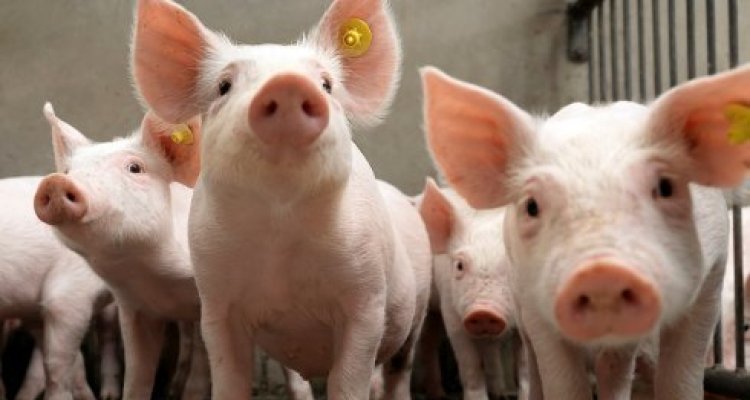
Streptococcus suis
Streptococcus suis (S. suis) is a bacterium that can cause severe illness in pigs and that occurs across the globe. S. suis is a zoonosis, meaning that the bacterium can be transferred from pigs to humans. Wageningen Bioveterinary Research (WBVR) studies this disease.
The disease is prevalent in the pig farming sector. Sows can carry Streptococcus suis on their tonsils and transfer it onto piglets that may then become ill. The bacterium is very diverse. In the Netherlands, serotype 9 is the most frequently occurring variant. Humans are seldomly infected in the Netherlands.
In piglets, Streptococcus suis may cause meningitis, arthritis, sepsis and even death. The disease causes major economic loss, as the pig farmer must pay for preventive measures, treatment (with antibiotics) and stunted growth and mortality in the pigs.
Streptococcus suis infection
There is considerable diversity within S. suis. To date, 35 different serotypes have been described. Not all of these serotypes are equally important. Globally, serotype 2 is most frequently isolated from infected pigs, but serotypes 1, 7 and 9 are also encountered regularly. There are regional discrepancies in the prevalence of the different serotypes. In the Netherlands, serotype 9 occurs with the greatest frequency.
Not only is there variation between the serotypes, but variations and subtypes also occur within serotypes. Within S. suis serotypes 2 and 9, for example, virulent and avirulent subtypes have been identified.
Clinical picture Streptococcus suis
Pigs
Infection with S. suis may cause meningitis, arthritis, sepsis and even death. Disease caused by S. suis occurs all over the world and mainly affects suckling pigs (around six weeks of age).
Humans
S. suis may be transferred from pigs to humans and may cause meningitis in humans. In western societies, pig farmers and slaughterers are considered the high-risk group.
Distribution Streptococcus suis
Pigs
Infections with S. suis occur on many pig farms. Sows may carry the bacteria on their tonsils without becoming infected. Sows may carry several different types of S. suis simultaneously. They are responsible for transferring the bacteria onto young and sensitive piglets.
Humans
A few cases of S. suis occur in humans in the Netherlands each year. In Asian countries, the number of incidents is much higher. A large outbreak of S. suis occurred in China in 2005, with 206 infections in humans, of which 38 were fatal.
Diagnostics Streptococcus suis
S. suis infections in businesses with clinically ill animals are generally confirmed through a post-mortem bacteriological and pathological investigation of the sick animal.
Wageningen Bioveterinary Research can analyse tonsil or saliva samples of animals that are not clinically ill using a PCR test to check for the presence of S. suis. There are also PCR tests available that discern between virulent and avirulent strains. These tests can be deployed for epidemiological studies and for the development of mitigation programmes.
Vaccine Streptococcus suis
Research by Wageningen Bioveterinary Research
Publications